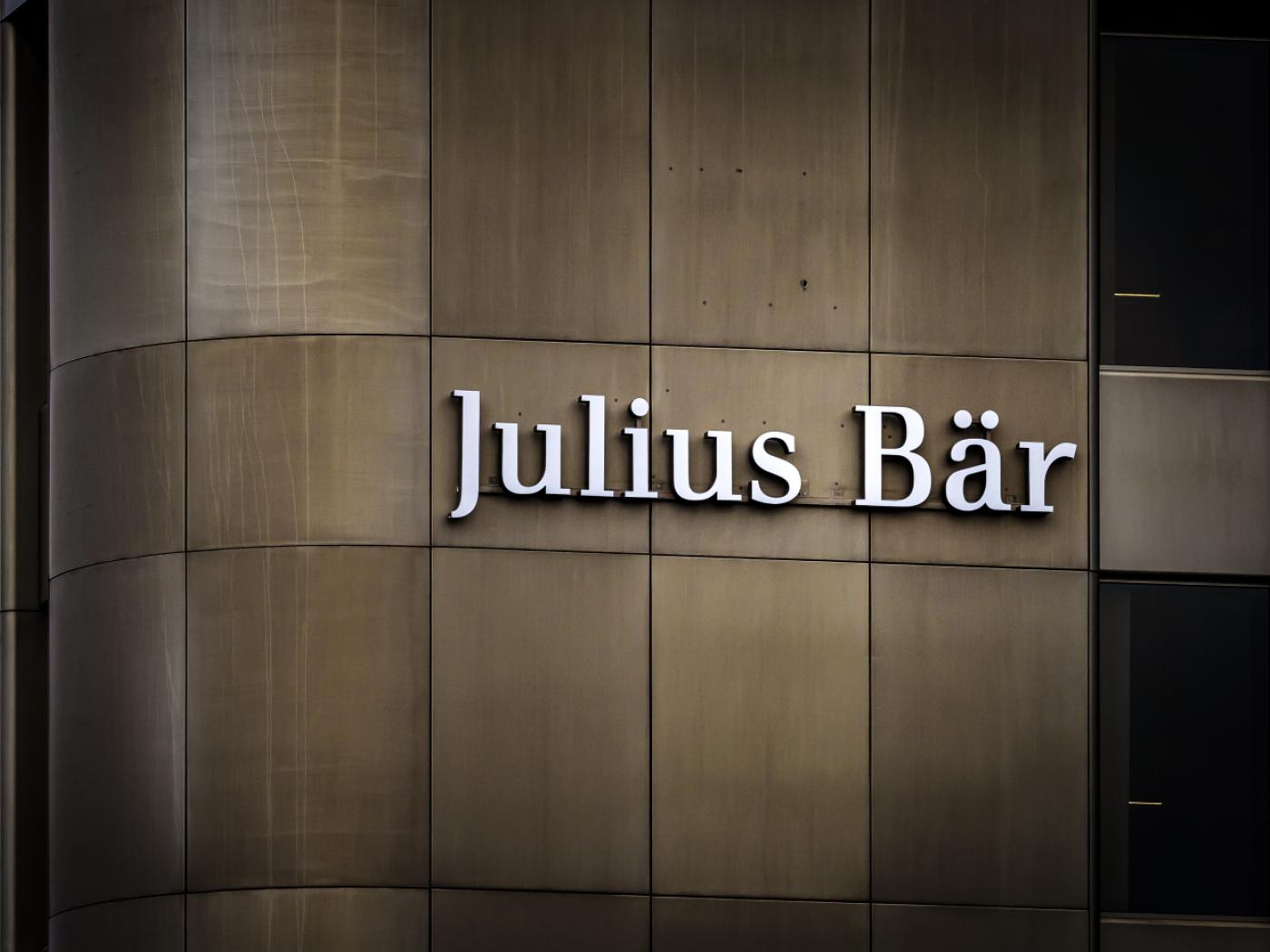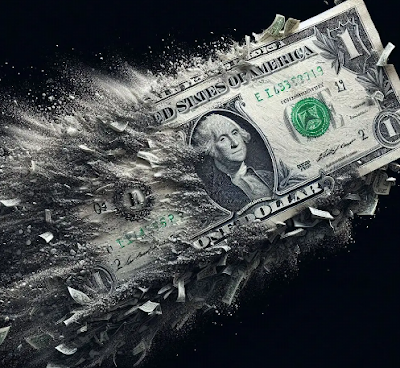With the end of the twentieth century rapidly approaching, this is a time to look back and gain some perspective on where we stand as a nation. Were the Founding Fathers somehow to return, they would find it impossible to recognize our political system. The major cause of this transformation has been America’s involvement in war and preparation for war over the past hundred years. War has warped our constitutional order, the course of our national development, and the very mentality of our people.
The process of distortion started about a century ago, when certain fateful steps were taken that in time altered fundamentally the character of our republic. One idea of America was abandoned and another took its place, although no conscious, deliberate decision was ever made. Eventually, this change affected all areas of American life, so that today our nation is radically different from the original ideal, and, indeed, from the ideal probably still cherished by most Americans.
The turning point was signaled by a series of military adventures: the war with Spain, the war for the conquest of the Philippines, and, finally, our entry into the First World War. Together, they represented a profound break with American traditions of government.
Until the end of the nineteenth century, American foreign policy essentially followed the guidelines laid down by George Washington, in his Farewell Address to the American people: “The great rule of conduct for us in regard to foreign nations is — in extending our commercial relations — to have with them as little political connection as possible.”
The purpose of Washington’s admonition against entanglements with foreign powers was to minimize the chance of war. James Madison, the father of the Constitution, expressed this understanding when he wrote:
Of all enemies to public liberty, war is, perhaps, the most to be dreaded, because it comprises and develops the germ of every other. War is the parent of armies; from these proceed debts and taxes; and armies, and debts, and taxes are the known instruments for bringing the many under the domination of the few.
History taught that republics that engaged in frequent wars eventually lost their character as free states. Hence, war was to be undertaken only in defense of our nation against attack. The system of government that the Founders were bequeathing to us — with its division of powers, checks and balances, and power concentrated in the states rather than the federal government — depended on peace as the normal condition of our society.
This was the position not only of Washington and Madison, but of John Adams, Thomas Jefferson, and the other men who presided over the birth of the United States. For over a century, it was adhered to and elaborated by our leading statesmen. It could be called neutrality, or nonintervention, or America first, or, as its modern enemies dubbed it, isolationism. The great revisionist historian Charles A. Beard called it Continental Americanism. This is how Beard defined it in A Foreign Policy for America , published in 1940:
[It is] a concentration of interest on the continental domain and on building here a civilization in many respects peculiar to American life and the potentials of the American heritage. In concrete terms, the words mean non-intervention in the controversies and wars of Europe and Asia and resistance to the intrusion of European or Asiatic powers, systems, and imperial ambitions into the western hemisphere [as threatening to our security].
An important implication of this principle was that, while we honored the struggle for freedom of other peoples, we would not become a knight-errant, spreading our ideals throughout the world by force of arms. John Quincy Adams, secretary of state to James Monroe and later himself president of the United States, declared, in 1821:
Wherever the standard of freedom and independence has been or shall be unfurled, there will be America’s heart, her benedictions, and her prayers. But she does not go abroad in search of monsters to destroy. She is the well-wisher to the freedom and independence of all. She is the champion and vindicator only of her own.
John Quincy Adams was the real architect of what became known as the Monroe Doctrine. In order to assure our security, we advised European powers to refrain from interfering in the Western Hemisphere. In return, however, we promised not to interfere in the affairs of Europe. The implied contract was broken and the Monroe Doctrine annulled in the early twentieth century by Theodore Roosevelt and, above all, Woodrow Wilson.
This noninterventionist America, devoted to solving its own problems and developing its own civilization, became the wonder of the world. The eyes and hopes of freedom-loving peoples were turned to the Great Republic of the West.
But sometimes the leaders of peoples fighting for their independence misunderstood the American point of view. This was the case with the Hungarians, who had fought a losing battle against the Habsburg monarchy and its Russian allies. Their cause was championed by many sectors of American public opinion. When the Hungarian patriot Louis Kossuth came to America, he was wildly cheered. He was presented to the president and Congress and hailed by the secretary of state, Daniel Webster. But they all refused to help in any concrete way. No public money, no arms, aid, or troops were forthcoming for the Hungarian cause. Kossuth grew bitter and disillusioned. He sought the help of Henry Clay, by then the grand old man of American politics. Clay explained to Kossuth why the American leaders had acted as they did: By giving official support to the Hungarian cause, we would have abandoned “our ancient policy of amity and non-intervention.” Clay explained:
By the policy to which we have adhered since the days of Washington. . . we have done more for the cause of liberty in the world than arms could effect; we have shown to other nations the way to greatness and happiness. . . . Far better is it for ourselves, for Hungary, and the cause of liberty, that, adhering to our pacific system and avoiding the distant wars of Europe, we should keep our lamp burning brightly on this western shore, as a light to all nations, than to hazard its utter extinction amid the ruins of fallen and falling republics in Europe.
Similarly, in 1863, when Russia crushed a Polish revolt with great brutality, the French Emperor invited us to join in a protest to the Tsar. Lincoln’s secretary of state, William Seward, replied, defending “our policy of non-intervention — straight, absolute, and peculiar as it may seem to other nations”:
The American people must be content to recommend the cause of human progress by the wisdom with which they should exercise the powers of self-government, forbearing at all times, and in every way, from foreign alliances, intervention, and interference.
This policy by no means entailed the “isolation” of the United States. Throughout these decades, trade and cultural exchange flourished, as American civilization progressed and we became an economic powerhouse. The only thing that was prohibited was the kind of intervention in foreign affairs that was likely to embroil us in war.
Towards the end of the nineteenth century, however, a different philosophy began to emerge. In Europe, the free-trade and noninterventionist ideas of the classical liberals were fading; more and more, the European states went in for imperialism. The establishment of colonies and coaling stations around the globe — and the creation of vast armies and navies to occupy and garrison them — became the order of the day.
In the United States, this imperialism found an echo in the political class. In 1890, Admiral Alfred Thayer Mahan, of the Naval War College, published The Influence of Sea Power Upon History . Soon translated into many foreign languages, it was used by imperialists in Britain, Germany, Japan, and elsewhere to intensify the naval arms race and the scramble for colonies. In America, a young politician named Theodore Roosevelt made it his bible.
The great Democratic President Grover Cleveland — strict constitutionalist and champion of the gold standard, free trade, and laissez-faire — held out against the rising tide. But ideas of a “manifest destiny” for America transcending the continent and stretching out to the whole world were taking over the Republican Party. Roosevelt, Mahan, Senator Henry Cabot Lodge, John Hay, and others formed a cabal imbued with the new, proudly imperialist vision. They called their program “the large policy.”
To them, America up until then had been too small. As Roosevelt declared, “The trouble with our nation is that we incline to fall into mere animal sloth and ease.” Americans lacked the will to plunge into the bracing current of world politics, to court great dangers, and do great deeds. Instead, they were mired in their own petty and parochial affairs — their families, their work, their communities, their churches, and schools. In spite of themselves, the American people would have to be dragged to greatness by their leaders.
Often, the imperialists put their case in terms of the allegedly urgent need to find foreign markets and capital outlets for American business. But this was a propaganda ploy, and American business itself was largely skeptical of this appeal. Charles Beard, no great friend of capitalists, wrote, “Loyalty to the facts of the historical record must ascribe the idea of imperial expansion mainly to naval officers and politicians rather than to businessmen.” For instance, as the imperialist frenzy spread and began to converge on hostility to Spain and Spanish policy in Cuba, a Boston stockbroker voiced the views of many of his class when he complained to Senator Lodge that what businessmen really wanted was “peace and quiet.” He added, with amazing prescience, “If we attempt to regulate the affairs of the whole world we will be in hot water from now until the end of time.”
In 1896, the imperialists got their chance, when William McKinley replaced Grover Cleveland as president. McKinley has the reputation of an “archconservative.” In reality, as Walter Karp wrote in his brilliant work The Politics of War , “What McKinley envisioned for the American Republic was a genuine new order of things, a modern centralized order, elitist in every way, and profoundly alien to the spirit of the Republic.” The key to McKinley’s transformation of America would be the “large policy.” McKinley made Hay his secretary of state and brought Theodore Roosevelt into the Navy Department. And a golden opportunity presented itself: the plight of Spain in its rebellious colony Cuba.
The year 1898 was a landmark in American history. It was the year America went to war with Spain — our first engagement with a foreign enemy in the dawning age of modern warfare. Aside from a few scant periods of retrenchment, we have been embroiled in foreign politics ever since.
Starting in the 1880s, a group of Cubans agitated for independence from Spain. Like many revolutionaries before and after, they had little real support among the mass of the population. Thus they resorted to terrorist tactics — devastating the countryside, dynamiting railroads, and killing those who stood in their way. The Spanish authorities responded with harsh countermeasures.
Some American investors in Cuba grew restive, but the real forces pushing America towards intervention were not a handful of sugarcane planters. The slogans the rebels used — “freedom” and “independence” — resonated with many Americans, who knew nothing of the real circumstances in Cuba. Also playing a part was the “black legend” — the stereotype of the Spaniards as blood-thirsty despots that Americans had inherited from their English forebears. It was easy for Americans to believe the stories peddled by the insurgents, especially when the “yellow” press discovered that whipping up hysteria over largely concocted Spanish “atrocities” — while keeping quiet about those committed by the rebels — sold papers.
Politicians on the lookout for publicity and popular favor saw a gold mine in the Cuban issue. Soon the American government was directing notes to Spain expressing its “concern” over “events” in Cuba. In fact, the “events” were merely the tactics colonial powers typically used in fighting a guerrilla war. As bad or worse was being done by Britain, France, Germany, and others all over the globe in that age of imperialism. Spain, aware of the immense superiority of American forces, responded to the interference from Washington by attempts at appeasement, while trying to preserve the shreds of its dignity as an ancient imperial power.
When William McKinley became president in 1897, he was already planning to expand America’s role in the world. Spain’s Cuban troubles provided the perfect opportunity. Publicly, McKinley declared: “We want no wars of conquest; we must avoid the temptation of territorial aggression.” But within the U. S. government, the influential cabal that was seeking war and expansion knew they had found their man. Senator Henry Cabot Lodge wrote to Theodore Roosevelt, now at the Navy Department, “Unless I am profoundly mistaken, the Administration is now committed to the large policy we both desire.” This “large policy,” also supported by Secretary of State John Hay and other key figures, aimed at breaking decisively with our tradition of nonintervention and neutrality in foreign affairs. The United States would at last assume its “global responsibilities,” and join the other great powers in the scramble for territory around the world.
The leaders of the war party camouflaged their plans by speaking of the need to procure markets for American industry, and were even able to convince a few business leaders to parrot their line. But in reality none of this clique of haughty patricians — “old money,” for the most part — had any strong interest in business, or even much respect for it, except as the source of national strength. Like similar cliques in Britain, Germany, Russia, and elsewhere at the time, their aim was the enhancement of the power and glory of their state.
In order to escalate the pressure on Spain, the battleship U.S.S. Maine was dispatched to Havana’s harbor. On the night of February 15, the Maine exploded, killing 252 men. Suspicion immediately focused on the Spaniards — although they had the least to gain from the destruction of the Maine. It was much more likely that the boilers had blown up — or even that the rebels themselves had mined the ship, to draw America into a war the rebels could not win on their own. The press screamed for vengeance against perfidious Spain, and interventionist politicians believed their hour had come.
McKinley, anxious to preserve his image as a cautious statesman, bided his time. He pressed Spain to stop fighting the rebels and start negotiating with them for Cuban independence, hinting broadly that the alternative was war. The Spaniards, averse to simply handing the island over to a terrorist junta, were willing to grant autonomy. Finally, desperate to avoid war with America, Madrid did proclaim an armistice — a stunning concession for one sovereign state to make at the bidding of another.
But this was not enough for McKinley, who had his eyes set on bagging a few of Spain’s remaining possessions. On April 11, he delivered his war message to Congress, carefully omitting to mention the concession of an armistice. A week later, Congress passed the war resolution McKinley wanted.
In the Far East, Commodore George Dewey was given the go-ahead to carry out a prearranged plan: proceed to the Phillipines and secure control of Manila’s harbor. This he did, bringing along Emilio Aguinaldo and his Filipino independence fighters. In the Caribbean, American forces quickly subdued the Spaniards in Cuba, and then, after Spain sued for peace, went on to take over Puerto Rico, as well. In three months, the fighting was over. It had been, as Secretary of State John Hay famously put it, “a splendid little war.”
The quick U. S. trouncing of decrepit Spain filled the American public with euphoria. It was a victory, people believed, for American ideals and the American way of life against an Old World tyranny. Our triumphant arms would guarantee Cuba a free and democratic future.
Against this tidal wave of public elation, one man spoke out. He was William Graham Sumner-Yale professor, famed social scientist, and tireless fighter for private enterprise, free trade, and the gold standard. Now he was about to enter his hardest fight of all.
On January 16, 1899, Sumner addressed an overflow crowd of the Yale Chapter of Phi Beta Kappa. He knew that the assembled Yalies and the rest of the audience were brimming with patriotic pride. With studied irony, Sumner titled his talk “The Conquest of the United States by Spain.” (It is contained in the Liberty Press edition of On Liberty, Society, and Politics: The Essential Essays of William Graham Sumner .)
Sumner threw down the gauntlet:
We have beaten Spain in a military conflict, but we are submitting to be conquered by her on the field of ideas and policies. Expansionism and imperialism are nothing but the old philosophies of national prosperity which have brought Spain to where she is now.
Sumner proceeded to outline the original vision of America cherished by the Founding Fathers, radically different from what prevailed among the nations of Europe:
They would have no court and no pomp; nor orders, or ribbons, or decorations, or titles. They would have no public debt. There was to be no grand diplomacy, because they intended to mind their own business, and not be involved in any of the intrigues to which European statesmen were accustomed. There was to be no balance of power and no “reason of state” to cost the life and happiness of citizens.
This had been the American idea, our signature as a nation: “It is by virtue of this conception of a commonwealth that the United States has stood for something unique and grand in the history of mankind, and that its people have been happy.”
The system the Founders bequeathed to us, Sumner held, was a delicate one, providing for the division and balance of powers and aimed at keeping government small and local. It was no accident that Washington, Jefferson, and the others who created the republic issued clear warnings against “foreign entanglements.” A policy of foreign adventurism would, in the nature of things, bend and twist and ultimately shatter our original system. As foreign affairs became more important, power would shift from communities and states to the federal government, and, within that, from Congress to the president. An ever-busy foreign policy could only be carried out by the president, often without the knowledge of the people. Thus, the American system, based on local government, states’ rights, and Congress as the voice of the people on the national level, would more and more give way to a bloated bureaucracy headed by an imperial presidency.
But now, with the war against Spain and the philosophy behind it, we were letting ourselves in for the old European way, Sumner declared — “war, debt, taxation, diplomacy, a grand governmental system, pomp, glory, a big army and navy, lavish expenditures, political jobbery — in a word, imperialism.”
Already, it seems, the global meddlers had come up with what was to be their favorite smear word: “isolationist.” And already Sumner had the appropriate retort. The imperialists “warn us against the terrors of ‘isolation,’” he said, but “our ancestors all came here to isolate themselves” from the burdens of the Old World. “When the others are all struggling under debt and taxes, who would not be isolated in the enjoyment of his own earnings for the benefit of his own family?”
In abandoning our own system, there would be, Sumner freely admitted, compensations. Immortal glory is not nothing, as the Spaniards well knew. To be a part, even a pawn, in a mighty enterprise of armies and navies, to identify with great imperial power projected around the world, to see the flag raised on victorious battlefields — many peoples in history thought that game well worth the candle. Only . . . only, it was not the American way. That way had been more modest, more prosaic, parochial, and, yes, middle class . It was based on the idea that we were here to live out our lives, minding our own business, enjoying our liberty and pursuing our happiness in our work, families, churches, and communities. It had been the “small policy.”
There is a logic in human affairs, Sumner the social scientist cautioned — once you make a certain decision, some paths that were open to you before are closed, and you are led, step by step, in a certain direction. America was choosing the path of world power, and Sumner had little hope that his words could change that. Why was he speaking out then? Simply because “this scheme of a republic which our fathers formed was a glorious dream which demands more than a word of respect and affection before it passes away.”
Sumner had to endure a storm of abuse for spoiling the national victory party. But suddenly the imperialists had problems of their own: before they could take control of the Philippines, they had to defeat Aguinaldo and his Filipino insurgents, now fighting for independence from America.
By 1899, the United States was involved in its first war in Asia. Three others were to follow in the course of the next century: against Japan, North Korea and China, and, finally, Viet Nam. But our first Asian war was against the Filipinos.
At the end of the Spanish-American War, we collected Puerto Rico as a colony, set up a protectorate over Cuba, and annexed the Hawaiian Islands. President William McKinley also forced Spain to cede the Philippine Islands. To the American people, McKinley explained that, almost against his will, he had been led to make the decision to annex: “There was nothing left for us to do but to take them all, and educate the Filipinos, and uplift and civilize and christianize them as our fellow-men for whom Christ also died.” McKinley was either unaware of or simply chose not to inform the people that, except for some Muslim tribesmen in the south, the Filipinos were Roman Catholics, and, therefore, by most accounts, already Christians. In reality, the annexation of the Philippines was the centerpiece of the “large policy” pushed by the imperialist cabal to enlist the United States in the ranks of the great powers. To encourage the Americans in their new role, Rudyard Kipling, the British imperialist writer, composed a poem urging them to “take up the White Man’s Burden.”
There was a problem, however. When the war with Spain started, Emilio Aguinaldo, the leader of the Philippine independence movement, had been brought to the islands by Commodore Dewey himself. Aguinaldo had raised an army of Filipino troops who had acquitted themselves well against the Spanish forces. But they had fought side by side with the Americans to gain their independence from Spain, not to change imperial masters. With the Spaniards gone, the Filipinos prepared a constitution for their new country — while McKinley prepared to conquer it. Hostilities broke out in February 1899, and an American army of 60,000 men was sent halfway across the globe to subdue a native people.
Probably a majority of Americans joined in the fun of the faraway war. But thoughtful citizens wondered what this strange adventure would mean for the republic.
To protest the war with Spain, the Anti-Imperialist League had been formed. It included some of the most distinguished figures in politics, business, journalism, and education. Most were also, not by accident, believers in the classical-liberal, laissez-faire vision of American society and staunch advocates of free enterprise, small government, low taxes, and the gold standard. Now the league turned its efforts to ending the war against the Philippines and stopping the annexation of the islands. What was occurring, they warned, was a revolution. While most Americans remained seemingly unaware or unconcerned, the U.S. was entering onto the road of imperialism, which, the League declared, “is hostile to liberty and tends towards militarism, an evil from which it is our glory to be free.” The “large policy” of global expansion would mean never-ending war and preparation for war; and that would mean ever-increasing government control and ever-higher taxes.
Carl Schurz, leader of the German-American community, had come here to escape militarism and arbitrary government in his native country. He pointed out the consequences of the new dispensation: “Every American farmer and workingman, when going to his toil, will, like his European brother, have to carry a fully-armed soldier on his back.” Edward Atkinson, who was head of a Boston insurance company as well as a radical libertarian, produced a series of pamphlets, including “The Cost of a National Crime,” detailing the U. S. military oppression of the Filipinos as well as the burgeoning cost of the war to peaceful American taxpayers. E. L. Godkin, editor of The Nation , at the time the country’s leading classical-liberal magazine, accused the imperialists of wanting to make America into “a great nation” in the European style, and thus prove that Washington and Jefferson had been a pair of “old fools.” Andrew Carnegie critiqued the doctrine that annexation of the Philippines was somehow required for American prosperity. And Mark Twain weighed in with sardonic blasts at a marauding American government that was betraying the principles it allegedly upheld. For their pains, the opponents of the war were smeared as contemptible “traitors” by the establishment press, led by The New York Times .
The anti-imperialists gained powerful ammunition for their attacks when letters from American soldiers to their families at home detailed — often with naive pride — the atrocities being committed by U. S. troops. Prisoners were routinely shot, whole villages burned down, civilians, including children, killed in batches of hundreds — all with the knowledge of — and usually under the direction of — commanding officers. Soon the Filipino victims were in the tens of thousands, and the number of American casualties far outnumbered those of the Spanish-American War itself. Americans in the Philippines were conducting themselves worse than the Spaniards ever had in Cuba. People wondered: How did we ever get ourselves into such a mess? The anti-imperialists pointed out that this was how the British were acting in the Sudan, the Italians in Abyssinia, the Germans in Southwest Africa. It was part of the price of empire.
The dirty war went on until, in March 1901, Aguinaldo was captured and the Filipino fighters surrendered. But now America was an Asiatic power, plunged into the maelstrom of the imperialist struggle in the Far East. Secretary of State John Hay proclaimed the “Open Door” policy in China: American diplomatic, political, and, if necessary, military power would be applied to force free trade throughout China. Our advance base in the Philippines and our wide-ranging Chinese policy would obviously entail conflict with powers already there. Already, at the Navy Department, they were beginning to talk of the coming “inevitable” war with Japan.
We began to meddle in world affairs — or, as the imperialists put it, to assume our “global responsibilities” in ways our leaders had studiously avoided before. We took part in international conferences; we dispatched troops to China to join those of the other powers in putting down the Boxer Rebellion of Chinese patriots; we sailed our shining new navy around the world to show that we too had become a world power; and our government became a promoter of overseas investment and foreign trade on a grand scale and at taxpayers’ expense. In Washington, the bureaucracies expanded at the State Department, the Navy Department, and elsewhere, filled with bright young men steeped in the new vision of America’s global destiny. More and more, the American wealth machine was diverted to furnishing the underpinnings of world power.
When McKinley was assassinated in 1901, he was succeeded as president by one of the country’s prime imperialists. Theodore Roosevelt was a politician of the new breed through and through. With great insight, H. L. Mencken later compared him with Kaiser Wilhelm of Germany. Both loved big armies and, especially, navies, Mencken wrote, and both believed in strong government both at home and abroad; no one ever heard either of them ever speak of the rights of man, only of the duties of citizens to the state. Interestingly, Teddy Roosevelt was a boyhood hero of a later American president — Lyndon Johnson — who admired his “toughness.”
A good deal of that reputation for “toughness” derived from the Perdicaris affair in 1904. This episode showed for the first time how an instant “success” overseas could be used by a president for his own political advantage. A Republican convention was meeting in Chicago, without much enthusiasm, to renominate Roosevelt for president. Ion Perdicaris was a wealthy merchant living in Morocco. Allegedly an American citizen, he had been seized by a Moroccan chieftain named Raisuli and held for ransom. Roosevelt rushed American warships to Tangiers, and the famous, curt message was telegraphed to the Sultan: “Perdicaris alive or Raisuli dead.”
When the Republican convention heard the news, it went wild with patriotic fervor. The only problem was that the State Department had already informed Roosevelt that Perdicaris was no longer an American citizen, having registered as a Greek subject in Athens for business reasons. Moreover, arrangements had already been made to free him. Roosevelt was aware of all of this; but the political gain from deceiving the public was too tempting. In time, other presidents would learn the same trick of projecting American power overseas simply to give their personal popularity a much-needed boost.
In 1912, Woodrow Wilson was elected president in a three-way election. Wilson was a “progressive,” a leader in the movement that advocated using the full power of government to create “real democracy” at home. But Wilson’s horizons were much broader than the United States. Preaching the gospel of “making the world safe for democracy,” he aimed to extend the progressive creed to the ends of the earth. More than Franklin Roosevelt himself, Woodrow Wilson is the patron saint of the “exporting democracy” clique in America today.
Even before the crisis came, Wilson announced his new revelation:
It is America’s duty and privilege to stand shoulder to shoulder to lift the burdens of mankind in the future and show the paths of freedom to all the world. America is henceforth to stand for the assertion of the right of one nation to serve the other nations of the world.
Soon America had its chance to serve. In 1914, Europe went to war, the bloodiest and costliest war in history up to that time.
The First World War was triggered by the assassination of the Archduke Francis Ferdinand, heir to the throne of Austria-Hungary, in Sarajevo, by a Bosnian Serb. But the war’s twisted roots went back for decades in the dark and complex diplomacy of the great powers. By 1914, Europe was an armed camp, divided into two great opposing blocks: the Triple Entente of France, Russia, and England, and the Triple Alliance of Germany, Austria-Hungary, and a less-than-reliable Italy. All the powers had vast armies and navies, equipped with the latest, most expensive weapons modern technology could produce.
When they heard of the murder of the Archduke (and of his wife Sophie), the Austrians decided to put an end, once and for all, to the Serbian threat to their tottering empire. They felt secure in the support of a powerful Germany. But Serbia was the protégé of Russia and the key to Russia’s designs in the Balkans. And Russia was allied with France, which in turn was linked to Britain by a “cordial understanding,” or Entente Cordiale. In the last weeks of July, halfhearted peace proposals were swept aside, as mutual fear gripped the European leaders and the orders were issued to mobilize the great armies. Ultimatums and declarations of war followed each other in rapid succession. By August 4, 1914, the European powers were at war and their armies were on the march.
Once war broke out in 1914, each of the European powers felt that its very existence was at stake, and rules of international law were rapidly abandoned.
The Germans violated Belgian neutrality because their war plan called for the quick defeat of France, and that could best be accomplished if the German army cut through Belgium. Britain declared a blockade of Germany that was illegal according to the accepted rules, since it was effected simply by laying mines, rather than by closing off German harbors with the use of surface ships. The Germans protested that the aim of the blockade — to starve them into submission by denying food to the civilian population — was also illegal. The British, who held undisputed command of the seas, ignored the German protests.
In the United States, public opinion was sharply divided, although into unequal segments. The great majority of Americans saw no reason for us to become involved in what was rapidly becoming a bloodbath. They felt that the European powers, having indulged themselves in rampant imperialism and militarism for a generation, were now reaping the whirlwind of their own political vices. For most Americans, the wisdom of the Founding Fathers’ advice — steer clear of foreign entanglements — was being demonstrated as never before.
But these tens of millions of Americans who wished for peace were mostly content to go about their business, trusting their government to keep the nation out of war. Meanwhile, a much smaller segment of the population harbored very different feelings. Concentrated on the Eastern Seaboard, and centered in New York, its members included most of the country’s social elite, which was by inclination and family tradition strongly pro-English. Prominent among the supporters of the Allied cause were the major New York banks. After it was over, Thomas W. Lamont, senior partner of the House of Morgan, referred to the first weeks of the European war:
Those were the days when American citizens were being urged to remain neutral in action, in word, and even in thought. But our firm had never for one moment been neutral. We didn’t know how to be. From the very start, we did everything we could to contribute to the cause of the Allies.
It was Woodrow Wilson himself, the president of the United States, who had cautioned his countrymen to remain neutral, even in thought. Yet in Washington, Wilson was surrounded by supporters of the English cause, the most important being Colonel Edward M. House, his advisor and intimate friend. The American ambassador to Britain, Walter Hines Page, was so pro-British he sometimes even astonished his English hosts. The only man in government who seemed to reflect the people’s desire for peace was the secretary of state, William Jennings Bryan. For, despite his protestations of neutrality, Woodrow Wilson, deep down, was as much a partisan of England as most of his advisors. In private, Wilson confided to his press secretary:
England is fighting our fight, and you may well understand that I shall not, in the present state of the world’s affairs, place obstacles in her way when she is fighting for her life — and the life of the world.
What Wilson was referring to were the violations of neutral rights being committed on the seas by the British in implementing their hunger blockade. American ships could not enter vast areas, on pain of being blown up by mines. Ships carrying goods that no one except the British considered to be contraband were prohibited from sailing to Germany and even to neutral ports. Mail bound for the continent was seized and searched. Occasionally, Washington chided the British government in a mild protest. But Walter Hines Page, our ambassador, was always ready to explain to his English friends that we did not really mean it.
The Germans announced that they were responding to the British blockade with submarine warfare, while admitting that they could not guarantee that neutral interests would be safeguarded. Now Washington came down hard. A note was sent to Berlin:
If the commanders of German vessels should destroy on the high seas an American vessel or the lives of American citizens, it would be difficult for the Government of the United States to view the act in any other light than as an indefensible violation of neutral rights.
The United States, the note warned, would hold Germany “strictly accountable” for the loss of American ships or lives through the actions of German submarines. The Germans replied that they would cease submarine warfare if the British lifted their illegal blockade.
On May 7, 1915, cruising off the southern coast of Ireland, Captain Walter Schwieger, of U-boat 20, found a target. Schwieger suspected the truth: that although a passenger liner, the British ship was carrying large amounts of explosives. From captured documents, Schwieger knew that many British merchant ships had been outfitted with guns and were under instructions to ram any surfacing submarine. He took no chances and fired a torpedo. An explosion aboard the ship caused it to start sinking at once. Schwieger had sunk the Lusitania , star of the British Cunard Line. Around 1,200 persons were killed, including 128 Americans.
Just as with the Maine in Havana in 1898 and the battleships at Pearl Harbor in 1941, mystery still surrounds the sinking of the Lusitania . Why was it sailing without destroyer escort through a notorious submarine zone? The First Lord of the Admiralty, Winston Churchill, had declared that there was nothing he would not do for his country, including “embroiling” neutrals in the war on England’s side. A number of students of the case have concluded that the sinking of the Lusitania had been arranged, in order to bring America into the war.
This was exactly what many influential Americans now demanded, including Theodore Roosevelt and Henry Cabot Lodge. Colonel House noted in his diary: “I have concluded that war with Germany is inevitable,” and advised Wilson accordingly. Secretary of State Bryan tried to stem the hysteria. He pointed to what an investigation had revealed — that the Lusitania was carrying 5,500 cases of ammunition — and declared that Americans should not book passage on British ships with mixed cargoes of “bullets and babies.” Bryan told Wilson:
We unsparingly denounce the retaliatory methods employed by Germany, without condemning the announced purpose of the Allies to starve the non-combatants of Germany and without complaining of the conduct of Great Britain in relying on passengers, including men, women, and children of the United States, to give immunity to a vessel carrying munitions of war.
Wilson hesitated. Finally, he decided to give the Germans one last warning, again holding them “strictly accountable,” but not admonishing the British in any way. Bryan, realizing that this policy sooner or later meant war, resigned.
Meanwhile, public opinion was starting to shift. There is no doubt that outside of the corridor that ran from Boston to Washington, the majority of Americans still demanded peace. Yet the influential newspapers were more and more urging “action” against Germany, and British propaganda was taking its toll. Many Americans were startled to read about the horrendous atrocities committed by German troops in Belgium: nuns raped and murdered; prisoners crucified on barn doors; babies maimed and slaughtered for amusement. Perhaps England was not just defending its own political and strategic interests, but really fighting for civilization itself? And wasn’t the cause of civilization an American cause as well? After the war was over, investigations by various commissions revealed the truth: though the Germans were harsh in punishing civilians who chose to engage in combat, the “atrocities” were a hoax. Later, Josef Goebbels, Nazi minister of propaganda, admired the British propaganda in World War I so much that he modeled his own campaigns on the “big lie” of the “Belgian atrocities.”
In Berlin, the Kaiser’s government decided to discontinue attacks on enemy passenger liners, even if armed and carrying munitions of war. But they insisted that the British should be compelled to “observe the rules of international law universally recognized before the War,” and terminate their blockade. This condition, however, Wilson chose to ignore. The diplomatic controversy between Germany and the United States dragged on for months.
A noisy campaign for “preparedness” began in the United States, led by Theodore Roosevelt and General Leonard Wood. The aim was to instill in the public an awareness of alleged threats to our national security. Summer camps, financed by security-minded bankers and industrialists, were held to train college students and even businessmen in the military arts. To familiarize Americans with the threat from overseas, the National Security League was launched, funded by U.S. Steel, the Rockefeller oil companies, and others concerned with national defense.
In 1916, Wilson was up for reelection. The Republicans had nominated the Supreme Court justice, Charles Evans Hughes, who called for a stronger stand against Germany. When the Democrats met in St. Louis, Wilson and his friends were in for a surprise. They had become used to the pro-Allied attitudes prevalent in Washington and the Eastern press. Now, they witnessed an assembly where every mention of peace was greeted with wild cheers. When one speaker used the phrase, “Wilson kept us out of war,” it was taken up by the whole convention. “He kept us out of war!” became the slogan of the campaign and won Wilson the votes of the Midwest, the mountain states, and California. Wilson had been reelected on a peace platform.
On the Western Front, the year 1916 brought inconceivable horrors. In the battles at Verdun and on the Somme, hundreds of thousands were killed on both sides. And still, despite all the carnage and the introduction of weapons like the tank and poison gas, neither side could crack the front.
But the British hunger blockade was slowly starving the enemy, and in the winter of 1916-17, the German potato crop failed. The military chiefs urged the Kaiser to order unrestricted submarine warfare, to force Britain to its knees before Germany collapsed. They conceded that, given Wilson’s policy, America would enter the war, but they promised that Britain would sue for peace before the U. S. forces could arrive. On January 31, 1917, Germany declared that any ship found in the waters around the British Isles would be sunk. To Wilson, Germany was breaking its pledge. He continued to abide by his position: Americans have the sacred right — which will, under all circumstances, be backed up the their government — to travel on armed belligerent merchant ships carrying munitions of war through submarine zones. On February 2, the United States severed diplomatic relations with Germany.
When the United States broke off diplomatic relations with Germany in February 1917, war did not immediately follow. President Wilson hesitated to take that final, fateful step, first asking Congress for authority to arm U.S. merchant ships. Since such a transformation of merchant ships into warships was a belligerent act under international law, the pro-peace forces in the Senate, led by Robert M. LaFollette of Wisconsin, fought back. For daring to oppose him, Wilson reviled them as “a little group of willful men, representing no opinion but their own” who “have rendered the great Government of the United States helpless and contemptible.” For the moment, however, Wilson was stymied.
Then British intelligence produced a bombshell. They intercepted and passed on to Wilson a secret telegram from a foreign-office official in Berlin named Zimmermann to the German ambassador in Mexico City. The note stated that though efforts would be made to keep the United States neutral, if America should enter the war, Germany would seek an alliance with Mexico. For its help, Mexico would regain its lost territories in Texas, New Mexico, and Arizona.
When the Zimmermann telegram was made public, Americans were outraged. Wilson exploited the turnaround in public opinion and issued an executive order stationing units of the U.S. Navy on board U.S. merchant ships. Soon, German submarines began sinking American ships in the declared war zones. Wilson, satisfied in his own mind that the responsibility for aggression lay solely with Germany, went to Congress for a declaration of war.
Wilson’s war speech showed off his great rhetorical skills at their most brilliant. At the same time, it revealed his conception of what our entry in the war meant, as well as the full measure of Wilson’s deviation from traditional American foreign policy:
We shall fight for the things which we have always carried nearest our hearts — for democracy, for the rights and liberties of small nations, for a universal dominion of right by such a concert of free peoples as shall bring peace and safety to all nations and make the world itself at last free. America is privileged to spend her blood for the principles that gave her birth and happiness and the peace which she has treasured. God helping her, she can do no other.
No longer would the aim and purpose of our foreign policy be to keep our nation safe from attack. Now it was our “privilege” to pour out our blood — and hard-earned wealth — until the whole world was forever free. If that meant that we would be involved in never-ending war and preparation for war, then it was well worth the price, because someday , somehow , the outcome would be freedom and peace for all mankind.
Senator LaFollette rose to reply to Wilson, in a last, desperate try at averting war. He punctured Wilson’s hypocritical plea to help free “small nations”: Were we going to war to free Ireland, Egypt, Cyprus, French Indo-China? He challenged Wilson to put the war declaration to a vote of the people. Finally, he ripped the mask off the movement that, in his view, was pushing the country into war against the popular will: the Eastern money interests.
Congress voted the declaration of war, by 82 to 6 in the Senate, and 373 to 50 in the House of Representatives. One of the antiwar votes in the House was cast by Jeannette Rankin of Idaho, the first woman ever to sit in the Congress of the United States. On December 8, 1941, Rankin would be the only member of Congress to vote against the declaration of war with Japan.
The progressive intellectuals signed on to the war with a vengeance. They realized that war would offer them opportunities unavailable in sober peacetime to fulfill their goal: the extension of the power of government over all of American society.
In all the belligerent countries, this greatest of wars up to this time required the total mobilization of the nation’s resources. Governments were granted powers beyond any they had enjoyed before. The economy was placed under state direction; manpower was directed either into war production or the military services; and public opinion was controlled and manipulated by the state. In this socialization of society, Germany led the way, but Britain, France, and the other warring states were not far behind. Once America entered the war, the same process began over here.
The Lever Act of 1917 gave the federal government jurisdiction over the food and fuel supplies of the nation. Communication lines and the merchant marine were likewise placed under government control. The War Labor Administration was set up, to oversee wages and conditions of work throughout the country. Legislation was passed enabling Washington to take over the railway network of the United States, which occurred in December 1917. The War Industries Board, headed by Bernard Baruch, had the power to intervene in any economic transaction anywhere in the land that it considered might affect the war effort. Loans were granted to America’s “co-belligerents,” mainly Britain and France. After the war, our sister-democracies reneged on the loans — calling us “Uncle Shylock” for even asking for the money back — so this amounted to our first foreign-aid program. In the greatest of the countless affronts to individual liberty, American men were drafted by the millions to fight in a foreign war.
The frenzy of interventionism in the economy broke the mold of old habits and traditions of limited government in America. Bernard Baruch, virtually the incarnation of the new class of politically connected businessmen, was convinced that a new chapter in our history had begun:
The War Industries Board experience had a great influence upon the thinking of business and government. We helped bury the dogmas of laissez faire, which had for so long molded American economic and political thought. Our experience taught that government direction of the economy need not be inefficient or undemocratic, and suggested that in time of danger it was imperative.
Socialists — many of them by now called themselves by the old name “liberal” — were gleeful. They had felt frustrated in their attempt to push their ideas and programs through in peacetime America: the ingrained resistance of the people to giving up their liberties had worked against them. Now John Dewey, the socialist philosopher and educator, looked on with satisfaction as the United States went the way of Germany, Britain, and the other belligerents:
In every warring country there has been the same demand that in the time of great national stress production for profit be subordinated to production for use. Legal possession and individual property rights have had to give way before social requirements. The old conception of the absoluteness of private property the world over has received a blow from which it will never wholly recover. Conscription has brought home to countries which have been the home of the individualistic tradition the supremacy of public need over private possession. No matter how many among the special agencies for public control decay with the disappearance of the war stress, the movement will never go backward.
Like economic freedoms, civil liberties, too, were sacrificed. The Espionage Act was used to stifle any criticism of the war; Eugene Debs, for instance, the leader of the Socialist Party, was sentenced to ten years in federal prison for stating at a convention of his party that it was the bankers who had gotten us into the war. The first government agency for propaganda in our history was set up, known popularly as the Creel Committee, with a staff of hundreds of employees. It sent books, pamphlets, and speakers into every corner of the country, rousing the war spirit and reviling the enemy. The public-school system, of course, proved to be a pliant tool of the government. The state’s propaganda line was spread to tens of millions of school children and their families. Teachers who were insufficiently ardent for war were dismissed. After the war, a national commission on education boasted:
Upon the declaration of war, the school machinery of every State was placed at the disposal of the Federal Government, which found in it a valuable means for the quick dissemination of the information and instruction needed to develop an enlightened and unified public opinion.
President Wilson took up the crusade begun by Theodore Roosevelt against “hyphenated Americans,” warning the “men and women of German birth who live among us” that, “if there should be any disloyalty, it will be dealt with with the firm hand of stern repression.” In fact, Americans of German descent, including Lutheran ministers, as well as Irish-Americans, were mercilessly hounded by federal agents, local authorities, and state-sponsored groups of “patriotic” citizens. Hatred of everything German was fanned to absurd heights, with symphony orchestras, for instance, pledging not to perform works by German composers for the duration of the war.
In Europe, the casualties mounted to staggering heights, especially on the Western Front. Battles like those at Verdun, the Somme, and Passchendaele claimed hundreds of thousands of dead on both sides. Yet the stalemate continued, as America was raising a vast conscript army of fresh recruits to add to the butchery. Thrones were toppled: in Russia, the Tsarist monarchy came to an end; after a brief interim government under Alexander Kerensky, who refused to withdraw Russia from the war, V. I. Lenin and his Bolsheviks were able to seize power and establish the first communist state.
In January 1918, Wilson addressed Congress once more to lay down the principles of a new world order that would guarantee eternal peace. The speech set forth fourteen points. There would be no more “secret diplomacy”; and freedom of the seas, free trade, and disarmament of all nations would be the order of the day. In Europe, state boundaries would be redrawn according to the principle of the self-determination of national groups. Finally, dearest to Wilson’s heart, there would be established a League of Nations, “a general association of nations . . . under specific covenants for the purpose of affording mutual guarantees of political independence and territorial integrity to great and small states alike.” A few weeks later, Wilson stressed that the peace conference would see to it that “there shall be no annexations, no contributions, no punitive damages.”
Wilson was promising the peoples of the warring nations, including the American people, a just world order that would “make the world itself at last free” and assure peace for all time. This was the vision he had cherished deep in his heart from the beginning, and it was the real reason for our entry into the First World War. But first Wilson would have to sell it to the canny politicians of Europe.
The vast changes that the First World War was to bring about began to occur even while the war was still going on. In February 1917, the Tsarist Russian state collapsed, and a provisional government was established. But in October, it gave way to the Bolsheviks, led by V. I. Lenin, who promised the Russian masses what they yearned for — peace. In January 1918, Lenin concluded a peace treaty with the Central Powers. The Eastern Front had ceased to exist.
Now, with Russia out of the war, German divisions in the East were shipped to the Western Front in a race with time. The Germans calculated that they had reserves and resources for one last offensive before the Americans began arriving in large enough numbers to decide the outcome of the war. In March 1918, they threw everything they had left into a final attempt to crack the Western Front.
For the first few weeks, it looked as if they might succeed. But those years of fighting the whole world had sapped Germany’s strength, and there were already over a million fresh American troops in France, with thousands more arriving every day. The offensive was halted, the Allied counteroffensive launched, and, in September, the German high command advised the Kaiser to seek an armistice. As Germany’s few allies — Bulgaria, Turkey, and, finally, Austria-Hungary — were knocked out of the war, Berlin announced it was ready to discuss peace terms on the basis of Wilson’s Fourteen Points. On November 11, 1918, Germany signed the armistice agreement, and the guns fell silent.
America had won the war for the Allies. Instead of letting the European nations find their own way to a compromise peace, American power had swung the balance decisively in favor of Britain and France. Among the consequences was the fall of the Kaiser and the old Germany, which Wilson, believing his own propaganda, considered the epitome of evil. Yet George Kennan, the diplomat and historian, wrote wryly after the Second World War:
Today if one were offered the chance of having back again the Germany of 1913 — a Germany run by conservative but relatively moderate people, no Nazis and no Communists — a vigorous Germany, full of energy and confidence, able to play a part again in the balancing-off of Russian power in Europe, in many ways it would not sound so bad.
The novel regime that Wilson insisted on as a condition of negotiating peace — the Weimar Republic — was to careen from one crisis to another until, finally, in 1933, it succumbed to Adolf Hitler.
In 1919, when Wilson appeared at the Paris Peace Conference, his popularity and prestige eclipsed that of any world leader before him. Now he was ready to create his new world order, his real aim in steering America into war. But, like virtually all American leaders who have dabbled in international politics, he knew practically nothing of the problems of other countries and peoples. What Wilson did possess was a little bundle of abstract principles: democracy, self-determination of nations, and, above all, his cherished dream, the League of Nations. By applying these few principles, he fully intended to solve, once and for all, the colossally complex, age-old problems of Europe, if not of the whole world.
That the Germans had not been invited to participate in framing the treaties already augured ill for any lasting peace. Historically, peace conferences had included, as a matter of course, both the victors and the vanquished — as the Congress of Vienna had included representatives of defeated France after the Napoleonic wars. The purpose of such a conference, it had always been assumed, was to make peace with the defeated nation, with which one would, after all, have to live. But vengeance was the order of the day at Paris in 1919. The treaty would be written by the victors and then imposed on the Germans when the time came.
Very soon it became obvious that the Princeton professor was out of his depth among the seasoned European politicians: Clemenceau of France, Lloyd George of Britain, and the surprisingly greedy Orlando of Italy. During the war the Allies had concluded a series of secret treaties among themselves to divide the spoils once the fighting was over. Wilson had chosen to ignore these agreements, as he pretended to the American people and to himself that the war was being fought for pure and righteous reasons. Now, at Paris, each of the Allies claimed its share of the territorial plunder, mainly in the form of the Arab parts of the Turkish Empire and the German colonies. These — including Palestine, Syria, Iraq, Southwest Africa, Tanganyika, Samoa, etc. — were accordingly parceled out, the victors preserving their pose of virtue by calling them mandates instead of colonies .
To serve the security and economic interests of the victors and their clients, the principle of self-determination was shamelessly flouted. Germans in the Sudetenland, Danzig, the Polish Corridor, the Saar, and Austria were prohibited from joining their fatherland. One quarter of the Hungarians were divided among neighboring countries. Germany itself was reduced to a fifth-rate military power, allowed no tanks, planes, or submarines, and permitted an army of only 100,000 men, in a Europe that remained armed to the teeth. Reparations were not fixed — they were to commence immediately and continue for decades. And in Article 231 of the Treaty of Versailles, the Germans were forced to confess that they and their allies were alone responsible for starting the war.
Wilson soon realized that the promise he had held out — of a peace with “no annexations, no contributions, no punitive damages” — had been betrayed. Occasionally, he raised a feeble voice of protest. But Clemenceau and the others quickly whipped him into line by simply hinting that they might not go along with his beloved League of Nations. Finally, it was too much for Wilson. He had an emotional and physical breakdown and left the conference.
By the time he returned, Wilson had convinced himself that as long as the League came into being, it did not matter what injustices he agreed to. When presented with the Treaty of Versailles, the German delegates at first refused to sign. They were threatened with a resumption of the war. Since they were now totally disarmed, having put their faith in Wilson’s promises, the Germans had no choice but to acquiesce. They insisted that this was no true peace treaty but a Diktat — a dictated peace. Many of the veteran diplomats present understood and were filled with foreboding: Germany would abide by the treaty until the day it became strong enough to tear it up.
Wilson signed the Treaty of Versailles, including the Covenant of the League of Nations, and the treaties with the other defeated nations, on behalf of the United States. Now he had to submit them to the U.S. Senate, controlled by the Republicans. Led by Henry Cabot Lodge of Massachusetts, they were even more interventionist than Wilson, well aware that Wall Street strongly favored the League. But they attached a few innocuous amendments to the treaty, to make political hay. Wilson was outraged at such presumption and ordered Senate Democrats to vote against the Republican version, which they did. Republicans voted against Wilson’s unadulterated treaty, so neither version could gain the two-thirds majority needed. Thus, the United States never signed the Treaty of Versailles — a few years later, under President Harding, we simply declared the war with Germany ended — and never joined the League.
Generations of school children have been taught that it was the dreadful “isolationists” who torpedoed Wilson’s project of a league to outlaw war and who thus paved the road to World War II. In fact, it was Wilson himself who started the world on the road to another war by helping to cobble together a vindictive and unworkable peace. As for the League, its real purpose was to lock in the borders of 1919 — to preserve forever the balance of power at the point where Germany and Russia did not count and British and French imperialism were triumphant across the globe. It is not surprising that most patriotic Americans wanted their country to have nothing to do with the League of Nations.
In 1920, the American people showed their hatred for the whole rotten Wilsonian system of economic control, the military draft, the Espionage Act, and war and meddling abroad. A pleasant nonentity named Warren Harding achieved the greatest landslide in any presidential election to that time by simply promising a return to “normalcy.” But this primordial surge of desire — to go back, to recapture the Republic that had been — was ill-fated. Too many institutions had changed, too many venerable taboos had been broken, too many special interests had been awakened to the scent of wealth and power at the taxpayers’ expense.
Robert Higgs, in his indispensable work, Crisis and Leviathan: Critical Episodes in the Growth of American Government , writes of the aftermath of the First World War:
Legacies of wartime collectivism abounded: the corporatism of massive governmental collusion with organized special-interest groups; the de facto nationalization of the ocean shipping and railroad industries; the increased federal intrusion in labor markets, capital markets, communications, and agriculture; and enduring changes in constitutional doctrines regarding conscription and governmental suppression of free speech.
“Looming over everything was the ideological legacy,” Higgs concludes — the change in fundamental ideas. Americans might despise him as a self-deceiving fraud, but Woodrow Wilson had changed their country permanently. When the next crises came — the Depression and another European war — Wilson’s methods would be resurrected and vastly amplified by a president who had served as assistant secretary of the Navy in the Wilson administration.
Between 1898 and 1919, a certain idea of America was let go and another put in its place. The older idea was of a nation dedicated to the right to life, liberty, and the pursuit of happiness of the people who comprise it. Crucial to this image of America was our traditional foreign policy: its aim and limit was to keep America strong enough to prevent attacks from abroad, or, if they occurred, to fend them off, so that the people could return to their peaceful pursuits. It was a foreign policy custom-made for the American Republic.
The new idea of America, nurtured by McKinley and Theodore Roosevelt, and brought to fruition by Woodrow Wilson, was of a nation made immensely powerful by its free institutions and dedicated to projecting its might in order to achieve freedom throughout the world. In this conception, we would be perpetually entangled everywhere on earth where we could do good. The American people would not be allowed to return to the peaceful enjoyment of their own rights until the whole world was at last free. This was — and is — the foreign policy of America as Empire, the negation of Republic. At the end of the twentieth century, it is not clear that the American people still have the power to choose between the two.
[This article was originally published by the Future of Freedom Foundation.]
Full story here Are you the author? Previous post See more for Next postTags: Featured,newsletter



































